How to Get Kids Involved in Prepping for a Disaster
The news these days has gotten out of control with apocalyptic weather that leaves devastating results. Look at what’s happening with Hurricane Beryl in the Caribbean and Mexico. There are severe wildfires in Northern California. Last week it was flooding in Iowa and other mid-western states. Across the country, countless lives are lost on a daily basis from severe weather and horrific unforeseeable events. While terribly unfortunate and tragic, some of the casualties from these events could have been prevented.
Planning for a traumatic event as families can certainly make a difference in survival. Emergency preparedness should be front and center when it comes to involving each age-appropriate family member in dealing with these challenges. Our teenagers can help us put together emergency supplies as part of an overall family emergency kit. We can include some younger children in kid-friendly activities like fire safety discussions. We need to be thinking about how we can contribute to preparedness rather than just waiting for emergency responders!
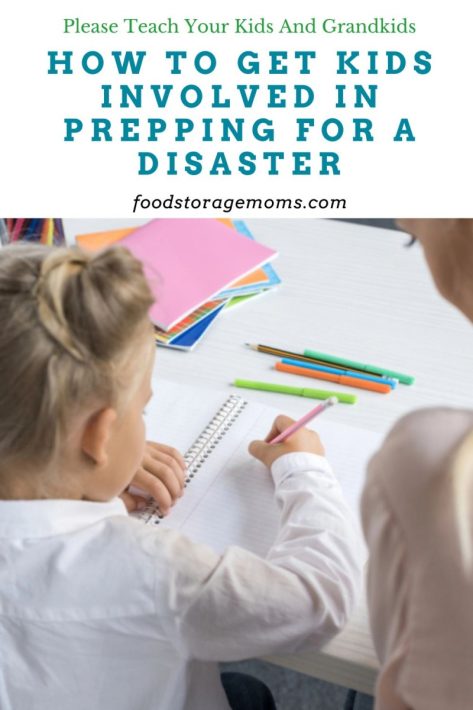
How to Get Kids Involved in Prepping for a Disaster
Make A Disaster Plan
Many Americans don’t have a game plan for when disaster strikes, leaving their children in the dark about what action is needed. What kind of disaster plan do you have for your family to be better prepared during an emergency? Keep reading to learn how to get kids involved in prepping for a disaster.
This is no laughing matter and one that you need to take very seriously. Having knowledge about bad weather and then coming up with a game plan can be the difference between life and death.
Teaching your children about these scenarios can be challenging because of their age or maturity, but don’t neglect it. Here are several ways that you can get your children involved in prepping for when disaster strikes.
Teach Kids About Disasters
It’s never too early to teach your children about natural disasters and horrible situations that can take place. Natural hazards come our way more often than we expect. Planning ahead helps to minimize the risks and provides confidence that we can face challenges.
Having them prepared with the knowledge of what to do, can go a long way in how they respond in their decision-making, actions, and emotions. Disasters can be unforgiving, whether you think your children should be burdened by those worries or not.
If you live in the Midwest, teach them about the dangers of tornadoes. If you’re from Florida or the Gulf Coast, it won’t hurt to tell them what hurricanes are and how to try and minimize their effect.
Maybe you live in New England and a blizzard strikes. When they understand the seriousness of the circumstances, they are less likely to freeze or panic. Flashlights and Lanterns
Come Up with an Emergency Plan for Key Situations
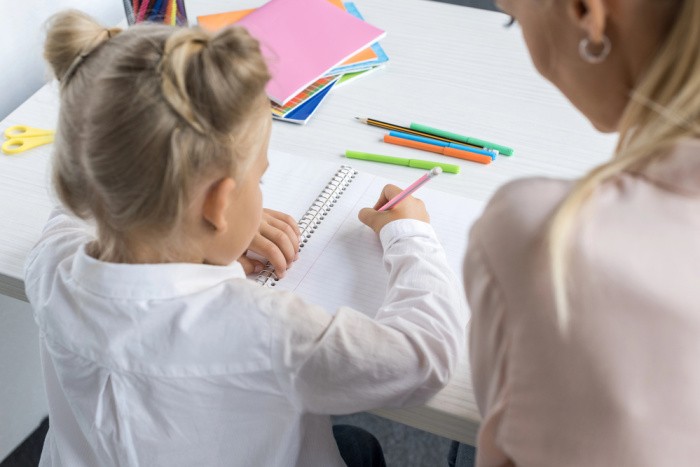
Sit down with your children and go over disasters that can strike while you’re at home. Make sure you cover house fires, tornadoes, blizzards, intruders and so on. Come up with an emergency plan for each disaster and write it down. Go over these plans often and practice your response so they will remember their part to play.
Practice Emergency Plans Regularly
Not only should you verbally go over what to do in an emergency, but actually practice it out, and do so regularly with your children. It might seem silly, but it could be a life-saver for your family and one of the free resources.
Practice Scenarios for Disaster Events
Mom and Dad should quiz their children from time to time by coming up with scenarios and how children should respond during those circumstances.
Have different questions for each child based on age and maturity, and switch it up often to ensure they fully understand what to do. Do evacuation planning and have fire drills!
Show Kids Where to Seek Shelter
If you have a basement, designate a location (safe place) that is appropriate for seeking shelter in case of a tornado. Having a panic room is extremely beneficial. Not only can it be used for storms, but in case of intruders as well.
Just be certain that a landline phone, walkie-talkie, or cell phone with chargers is in the room so your family isn’t trapped. Also, show your children that during a fire they should never try to hide somewhere. Show them how best to get out, no matter what. Young children can learn more than you think when it comes to understanding what’s going on.
Have Kids Memorize Emergency Numbers
Have a spot on your refrigerator or somewhere everyone agrees upon for emergency numbers. They need to be visible and somewhere where children can easily see them based on their height.
Kids need to know about emergency communications and how to use cell phones and what numbers to call. Those emergency contacts and family members’ contact information should be drilled into their brains, but try to do so without scaring them too much.
Teach Kids When to Call 911
Show your kids how to call 911, but only for true emergencies. Give them examples of when they need to call for help, and what information they need to share with the dispatcher.
Introduce Basic Survival Skills
Introducing your children to Boy Scouts or Girl Scouts isn’t a bad idea. Not only do they learn life skills, but also basic survival skills like what you need for first aid supplies and how to use them. If not, take things into your own hands and teach them how to safely make a fire, build a temporary shelter, read a map, and dress minor wounds.
Show them Where the First-Aid Kit is
Make sure that you have all the essentials in a first-aid kit for every emergency you can think of. Pain relief, antibiotic ointments, band-aids, a splint, gauze pads, calamine lotion, tweezers, soap, and instant cold packs are a few of the basics you need in your first-aid kit. Have emergency drills to ensure the kids know the medical care plan!
Have a Disaster Relief Scavenger Hunt
Gathering your belongings after a disaster strikes can be next to impossible. Not only are you paralyzed by the circumstances, but your children are also worried, asking hundreds of questions, while not leaving your side.
With all the crying in the background and your head not being on straight, total chaos can set in. Having a disaster relief area in your basement or emergency go-bag ready can smooth things out a bit.
Get the kids involved and have a scavenger hunt to find the essentials you might need in an emergency.
Not only should a first-aid kit be in the general vicinity, but a battery-operated radio, a flashlight with extra batteries, extra blankets, changes of clothes, non-perishable foods with a can opener, and enough water to last for several days (one gallon a day per person minimum). Including activities like games or toys will help your children cope with the crisis more easily.
Certain items that have an expiration date, including medications and infant formula, don’t have to be packed away beforehand. Simply have a checklist with your critical items, that way you can gather them quickly if they’re kept accessible.
Leaving your children unprepared during an emergency can prove costly. While it might be a lot for your children to handle, just imagine if they were left alone not knowing what to do when calamity struck.
Find ways of making it fun for your children while preparing for the unexpected. In what ways have you prepared your children on how to handle disastrous situations? Kid-friendly disaster prep is an important part of prepping as a family.
Final Word
Getting our children involved in prepping is smart. Not only will they know what to do during a disaster or emergency, but they are also learning life skills.
These are life skills that video games will never be able to teach. You never know what type of disaster will strike, disaster preparedness is important. May God bless this world, Linda.
Copyright Images: Kids Walking Holding Hands Depositphotos_263204894_S By IgorVetushko, Child Drawing with Mother Depositphotos_163063316_S By AllaSerebrina

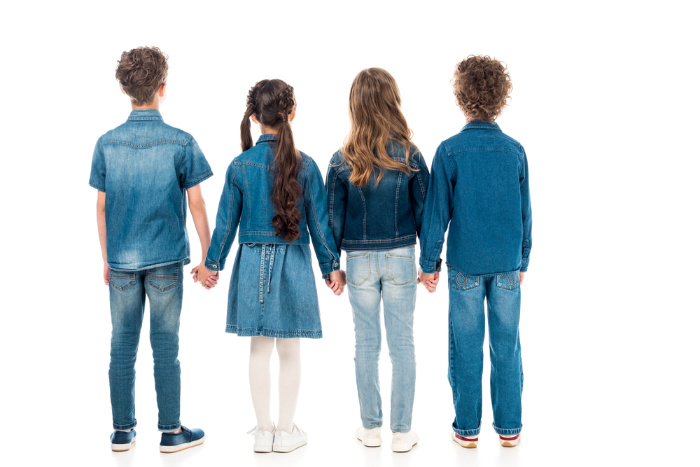

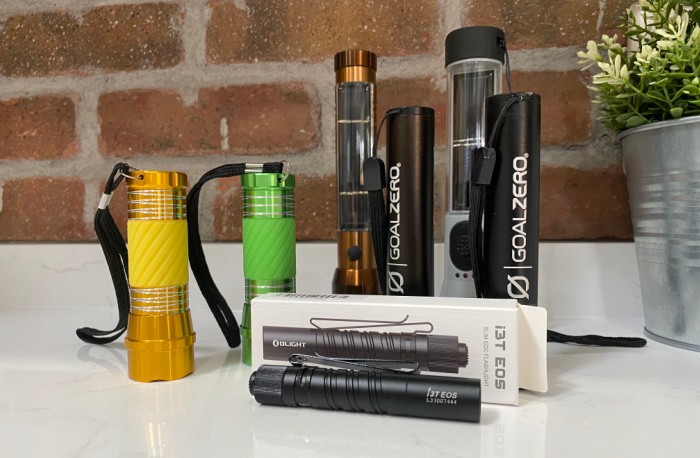
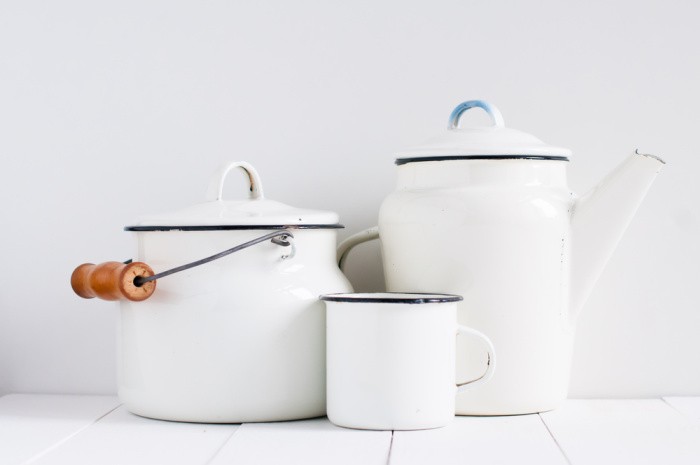
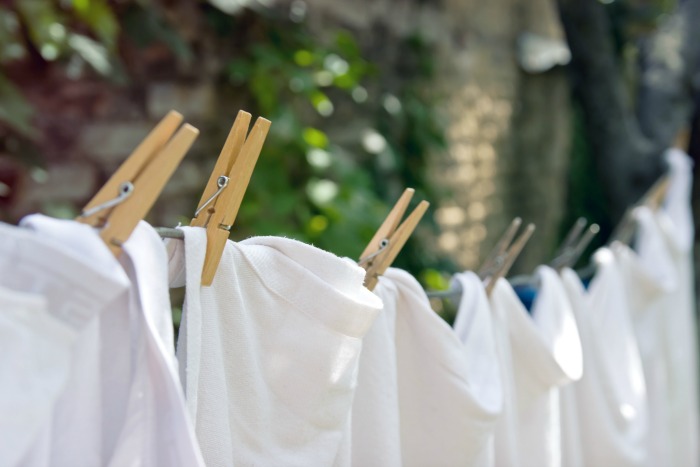
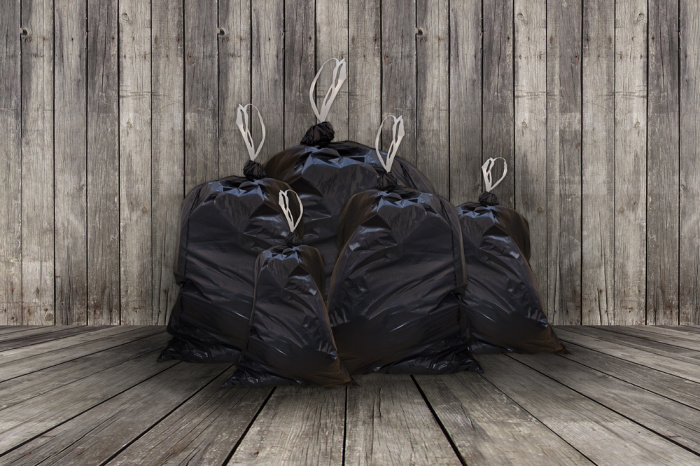
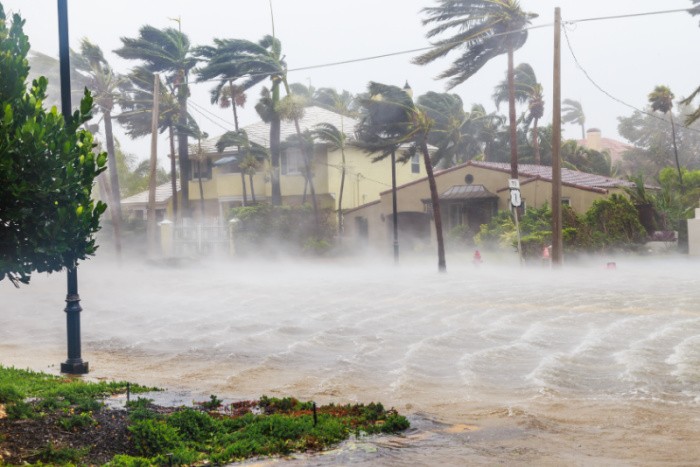
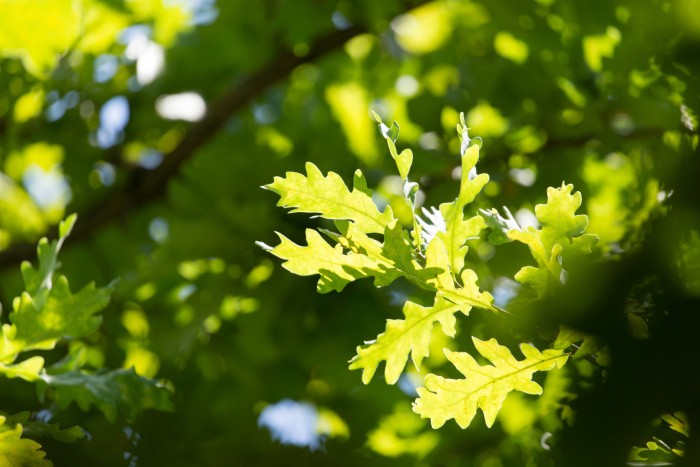
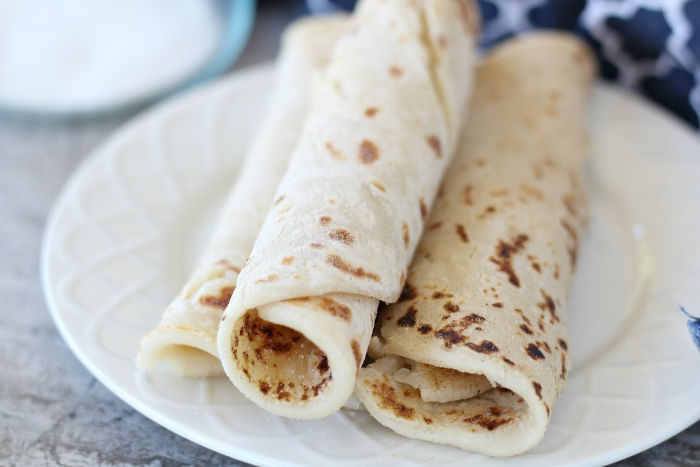
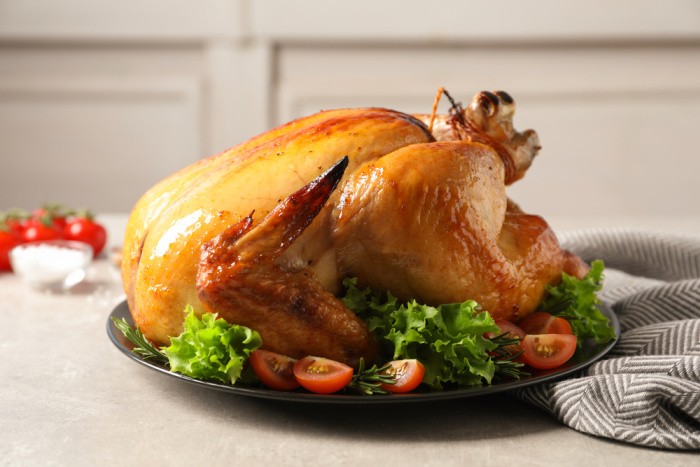
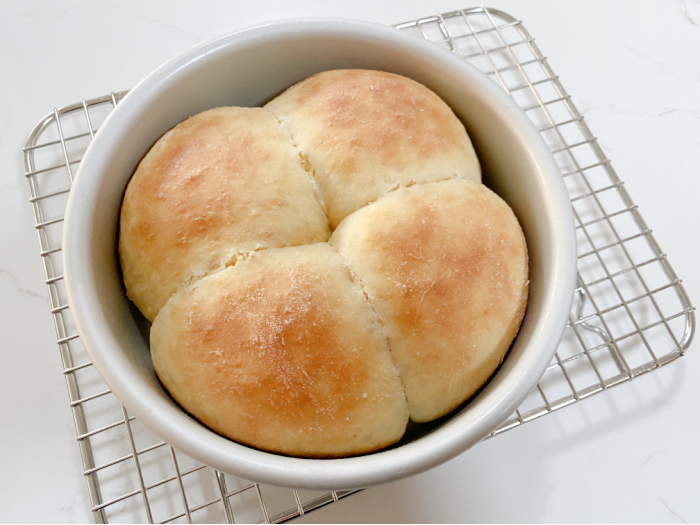
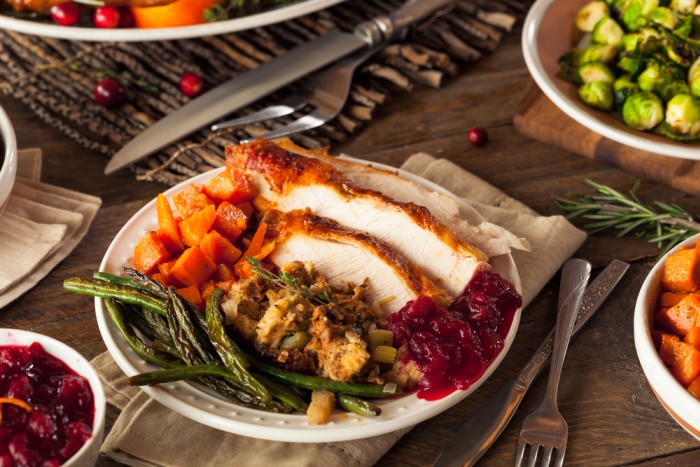
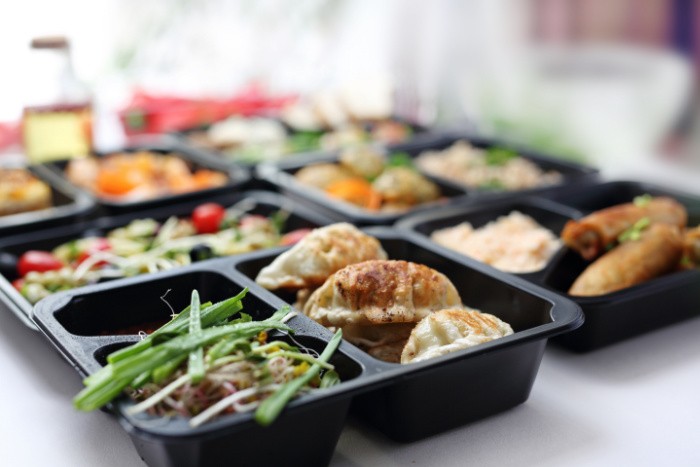
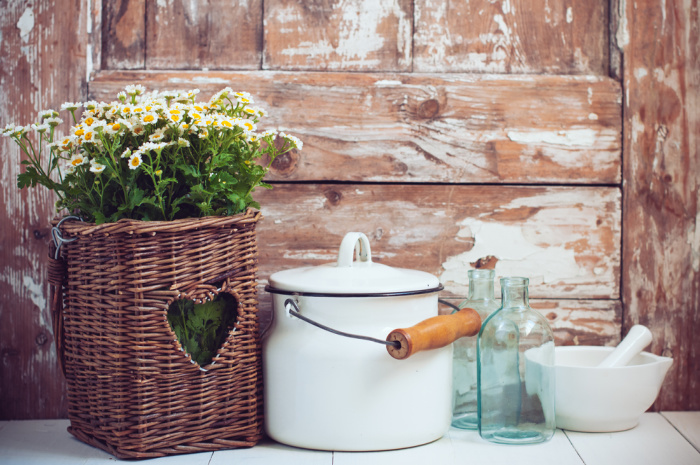
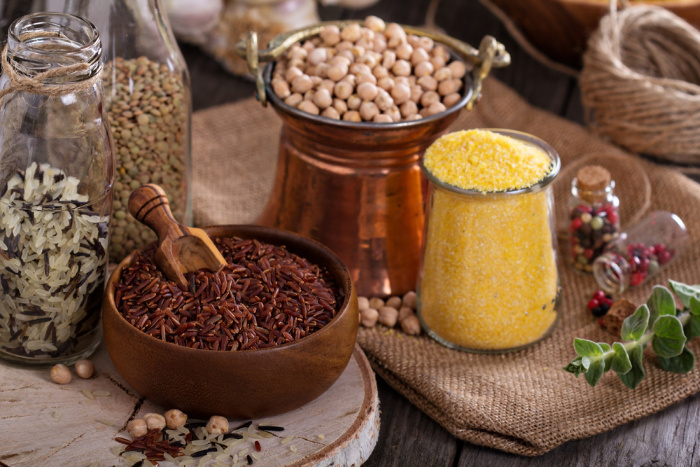

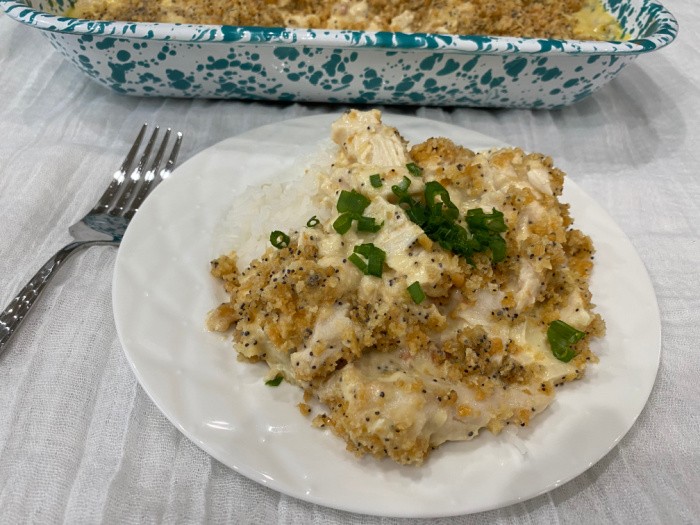
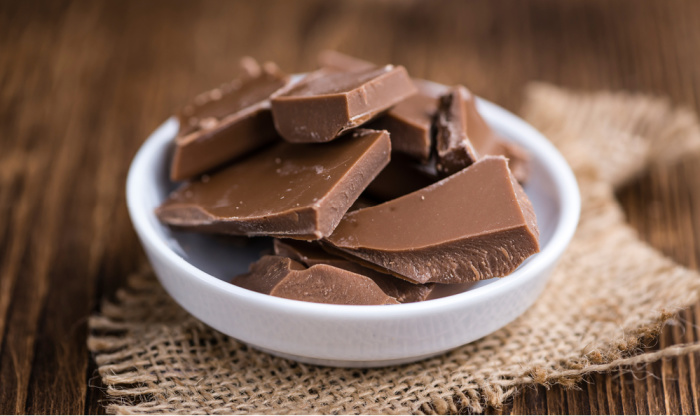
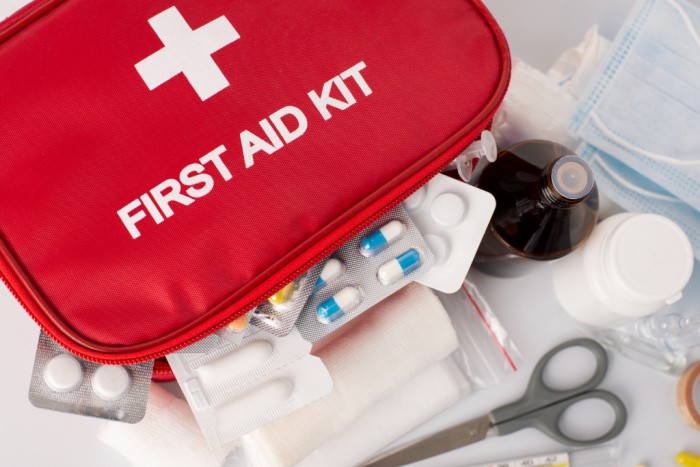
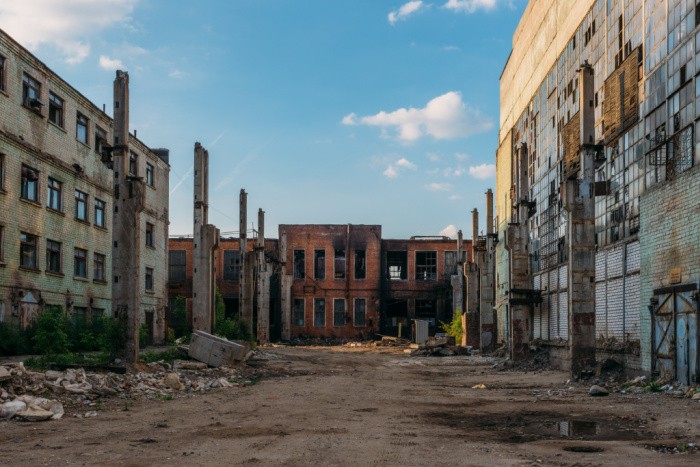

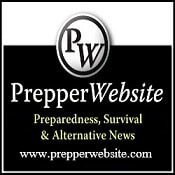
When I was teaching my now adult kids our phone number, I used a sinsongy rhyme and little tune to help them remember. It would probably help with emergency numbers also.
Hi Jan, that’s a great idea! Thank you so much, Linda
Linda, great ideas on how/why/what to teach youngsters. Sometimes parents teach by example: a funny (but practical) thing my mother did, and I still do, is to have one’s purse by the bed when sleeping. She said her Most Valuable Possession was in it: her address book! Besides the addresses/phone #’s written in it, was all 8 of us kids social security #’s (as well as hers and dad’s), dad’s DL number, their bank account and insurance info. ” Might not have time to grab strongbox” in case of fire, flood, tornado. By example, I too keep an address book in my purse! Lol, where I now keep my passwords too. In teaching my kids about “stuff”, I’ve made sure they know my old-time address book is also my MVP. Also made sure they know documents are in my small safe. It does weigh about 15 lbs, so might be bulky to grab in an emergency. My purse? Pretty easy carry!
Hi Wendy, oh my gosh, I love that term MVP, it truly is our most valuable possession!! It’s great to tell the kids and grandkids where the address book is. I have stuff on my phone, but if I can’t charge that baby, I have my address book! Great comment!! Linda
I don’t have kids nor are there any in my house, but I think it’s a good idea for them to know what to do in any given situation. At any age, such knowledge is important.
Just knowing that a tornado means going into the basement, a fire means getting out of the house by any method you’ve taught them, or they need to contact you or go to a safe spot for pickup or meeting up, will keep them alive and easy to find in the chaos of any crisis. I’d feel good knowing that kids will take appropriate actions that keep them out of harm while adults and other able bodied people are on their way to join or pick them up for evacuation or relocation to a safe place.
Most adults should know what to do, but we know many fail in that endeavor nor are they prepared in anyway with knowledge, supplies, gear, plans or training. And the results are often tragic. I wish all the people I knew, would make plans and practice preparedness.
Hi Frank, great comment! I totally agree with you! I wish others would make plans, and practice preparedness! I’m extremely worried about the neighborhood I live in, a few are prepared but 99% are not. I can’t afford to move so I make do with my situation. But if a disaster hits our neighborhood, God please have mercy on them. That’s all I can pray for, Linda
This really is one of your best articles ever. I learned Prepping from my grandparents (not that they called it that), who survived the Great Depression by hunting, fishing and growing their own food. When I was teaching my kids about preparedness I tried to make it fun. My son took to hunting and fishing and enjoyed both, but neither he nor my daughter had any interest in gardening, and she didn’t care for hunting or fishing at all. Now that they are grown and can see what’s happening in the world around them they’ve both taken to gardening. All we can do is try our best to teach them the skills they may need. The rest is up to them.
Hi Ray, Mark and I taught our girls to garden, harvest and can. Not one of them is interest in doing it. Things have changed and it makes me sad. We had so much fun canning together and the skills they learned are priceless. But life has changed, my girls all have to work, prices of everything, rent, house payments, utilities, I could go on and on, but I better get off my soapbox! LOL!The rest is up to them. I can only do so much. Thank you for your kind words my friend. Linda
It’s a way of life round with tornadoes and such.
We just got my son his own shelter in his house. We paid partially for it because we’ve had too many close calls on which they almost didn’t or didn’t make the 5 miles to mine with the sudden storms. Now my 6yr old grandson will be safe as well as my mom who lives next door to them.
I’ve also worked on carrying water and snacks with him especially in the summer. He’s real good bout it now.
Just gotta plant them seeds and they’ll grow.
He’s got a pretty good grasp on gardening from us and my mom. He’s got a good grasp on cattle for food from me. He’s watched us can and this year is gonna get to go one day for deer season. The other day he spotted a mulberry tree by himself because of what we’ve taught him.
These things will help him along with food security.
I started his BB gun training couple months ago. Not only shooting but walking around with it and knowing distances and safety.
My wife got him a multi tool and I put it in a pouch so bout everything has been “worked on” that can be by him lol
Hi Matt, he is one lucky grandson! I love hearing you were able to get your son’s shelter built, you have had some close calls. That’s what families do for one another. You are a good example to that 6 year old. I can visualize his multi tool! I love this stuff! Life is good with training from Grandpa Matt! Linda